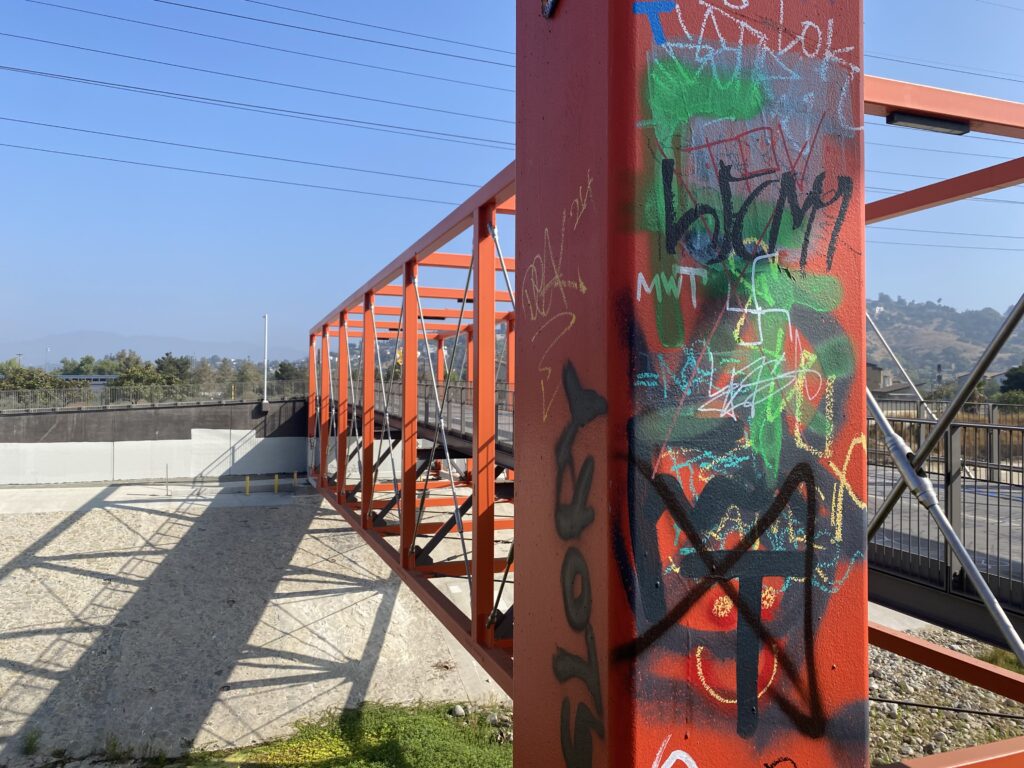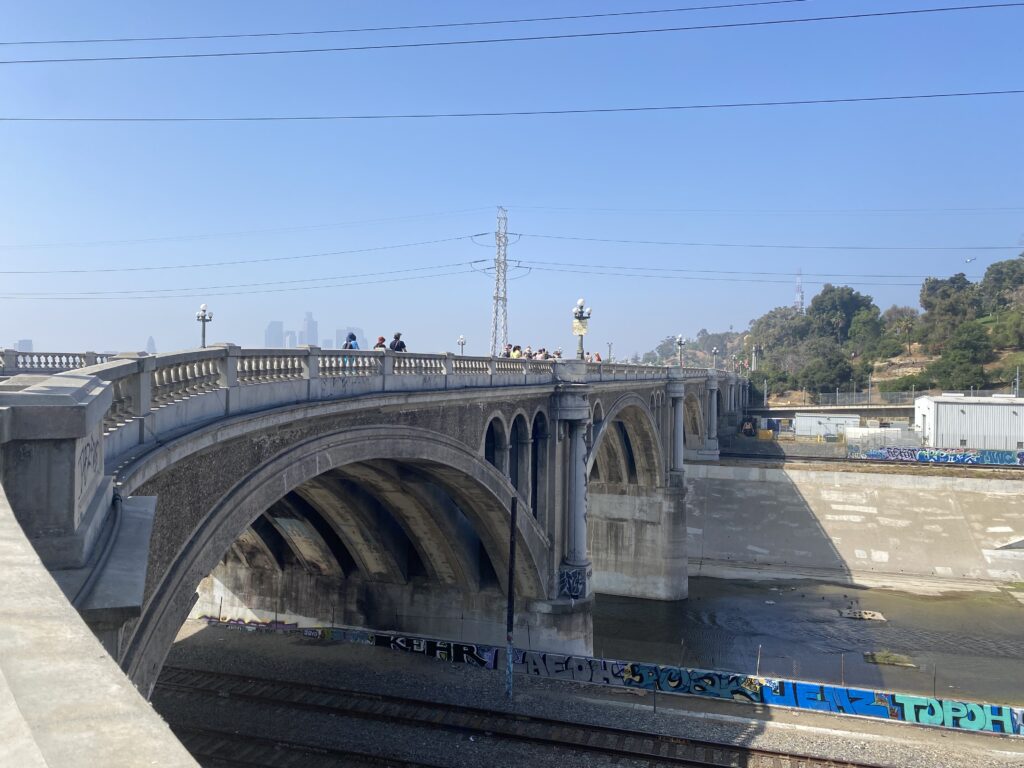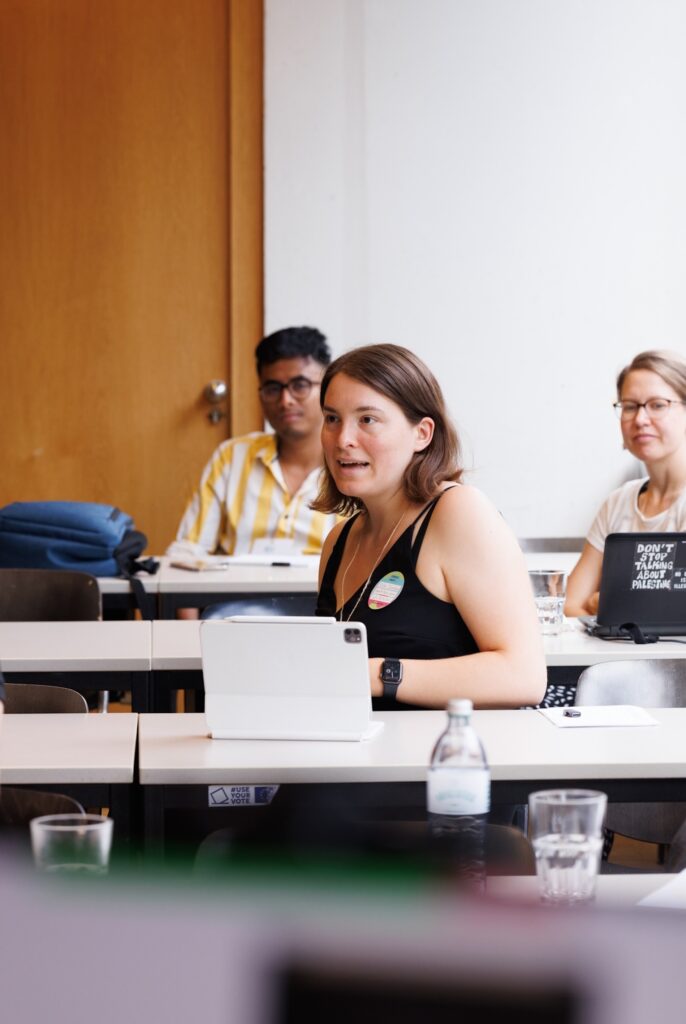Im September 2024 haben wir im Rahmen einer Forschungsreise nach Los Angeles gemeinsam mit Andrea Ballestero den Workshop „Missing, Underappreciated, Found“ im Rahmen des Ethnography Studios organisiert und unsere Forschung unter dem Thema „Maps and Models as Machine Ethnography“ mit Kolleg:innen diskutiert.
Mit dem Ethnography Studio an der University of Southern California in Los Angeles haben Andrea Ballestero und Katie Ulrich ein Forum geschaffen, das Ethnograf:innen aus verschiedenen Disziplinen zusammenbringt – von Kunst und Ingenieurwesen bis hin zu Anthropologie, Informatik und Soziologie. Hier experimentieren Forschende mit neuen Ansätzen, um komplexe soziale Phänomene zu verstehen. Eine leitende Idee ist, dass die Unsicherheiten und Mehrdeutigkeiten ethnografischer Forschung sich für kreatives Denken als wertvoll erweisen. Das Studio setzt auf eine Vielfalt an Methoden und theoretischen Perspektiven und schätzt Widersprüche statt Kohärenz. Die Mitglieder entwickeln ihre Projekte und Forschungsideen in einem kollaborativen Raum, in dem sie sich gegenseitig herausfordernde Fragen stellen.


„Missing, Underappreciated, Found“
Im Workshop Missing, Underappreciated, Found wurden die Transitional Devices untersucht, die Ethnografen in ihrer Arbeit begegnen oder selbst erzeugen, um ihre Forschungsprojekte zu entwickeln. Ziel war es, die Möglichkeiten zu beleuchten, die diese ethnografischen Werkzeuge (wie Satellitenkarten, Datenbanken, quantitative Modelle) eröffnen, wenn die Arbeit mit ihnen etablierte ethnografische Methoden wie teilnehmender Beobachtung und Interviews ergänzt.
Neben unserer Projektgruppe stellten zwei weitere Projekte ihre laufende Forschung vor: Labyrinth (UCLA) und Expanding the Social World Downwards (USC).
Weiterlesen
In unserem eigenen Beitrag haben wir unter der Überschrift Maps and Models as Machine Ethnography untersucht, wie digitale Kartierung und Quantitative Modelle als Werkzeuge und Gegenstände Ethnographischer Forschung spannende Perspektiven und Einsichten ermöglichen. Dabei stellten wir zwei Objekte gegenüber: Das neue Verkehrsmodell, das Ingenieure der Stadt Frankfurt entwickeln sowie unsere eigene experimentelle Kartierung der komplexen Akteurs- und Datenlandschaft im Kontext der Mobilitätswende in Frankfurt, die wir mit der digitalen Graphenvisualisierungssoftware Gephi erstellen. Dabei zeigten wir auf, wie diese digitalen Modelle und Karten nicht Abbilder der Realität darstellen, sondern in ihrer Reduktion komplexer Zusammenhänge selbst weltgestaltend sind und ethnographische Forschung und ihre Fragestellungen aktiv prägen und erweitern.



